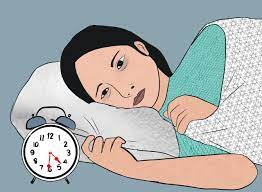Introduction
Insomnia is a serious sleep disorder that affects millions of people worldwide. It can have a significant impact on quality of life, and recent research suggests it may even be linked to an increased risk of stroke.
This presentation will explore the potential link between insomnia and stroke, and the mechanisms by which insomnia may cause this serious health condition.
What is Insomnia?
Insomnia is a sleep disorder characterized by difficulty falling asleep or staying asleep. There are two main types of insomnia: acute and chronic. Acute insomnia is typically short-term and may be caused by stress, illness, or other factors. Chronic insomnia, on the other hand, lasts for more than three months and may be caused by underlying medical or psychological conditions.
Symptoms of insomnia include difficulty falling asleep, waking up frequently during the night, waking up too early in the morning, and feeling tired or irritable during the day. If left untreated, insomnia can have a significant impact on physical and mental health.
The Link to Stroke
Recent research has suggested that there may be a link between insomnia and an increased risk of stroke. One study found that people with insomnia were 54% more likely to have a stroke than those without insomnia.
While the exact mechanisms behind this link are not yet fully understood, it is believed that insomnia may contribute to the development of risk factors for stroke, such as high blood pressure and inflammation.
How Insomnia Causes Stroke
There are several potential mechanisms by which insomnia may cause stroke. One theory is that insomnia may contribute to the development of atherosclerosis, or the buildup of plaque in the arteries. This can lead to blockages in the blood vessels supplying the brain, increasing the risk of stroke.
Insomnia may also contribute to the development of other stroke risk factors, such as high blood pressure and inflammation. Additionally, sleep deprivation has been shown to impair cognitive function and increase the risk of accidents, which may also contribute to the risk of stroke.
Prevention and Treatment
Fortunately, there are strategies that can be used to prevent and treat insomnia, which may help reduce the risk of stroke. These include practicing good sleep hygiene, such as maintaining a regular sleep schedule and avoiding caffeine and alcohol before bedtime.
Other treatments for insomnia may include medication, cognitive behavioral therapy, and relaxation techniques such as meditation or yoga. By addressing insomnia and improving sleep quality, individuals may be able to reduce their risk of stroke and improve overall health and well-being.
Conclusion
In conclusion, insomnia is a serious sleep disorder that may be linked to an increased risk of stroke. While the exact mechanisms behind this link are not yet fully understood, it is clear that addressing insomnia and improving sleep quality may help reduce the risk of stroke and improve overall health and well-being.
By practicing good sleep hygiene, seeking treatment for insomnia, and taking steps to reduce other risk factors for stroke, individuals can take control of their health and reduce their risk of this serious and potentially life-threatening condition.





